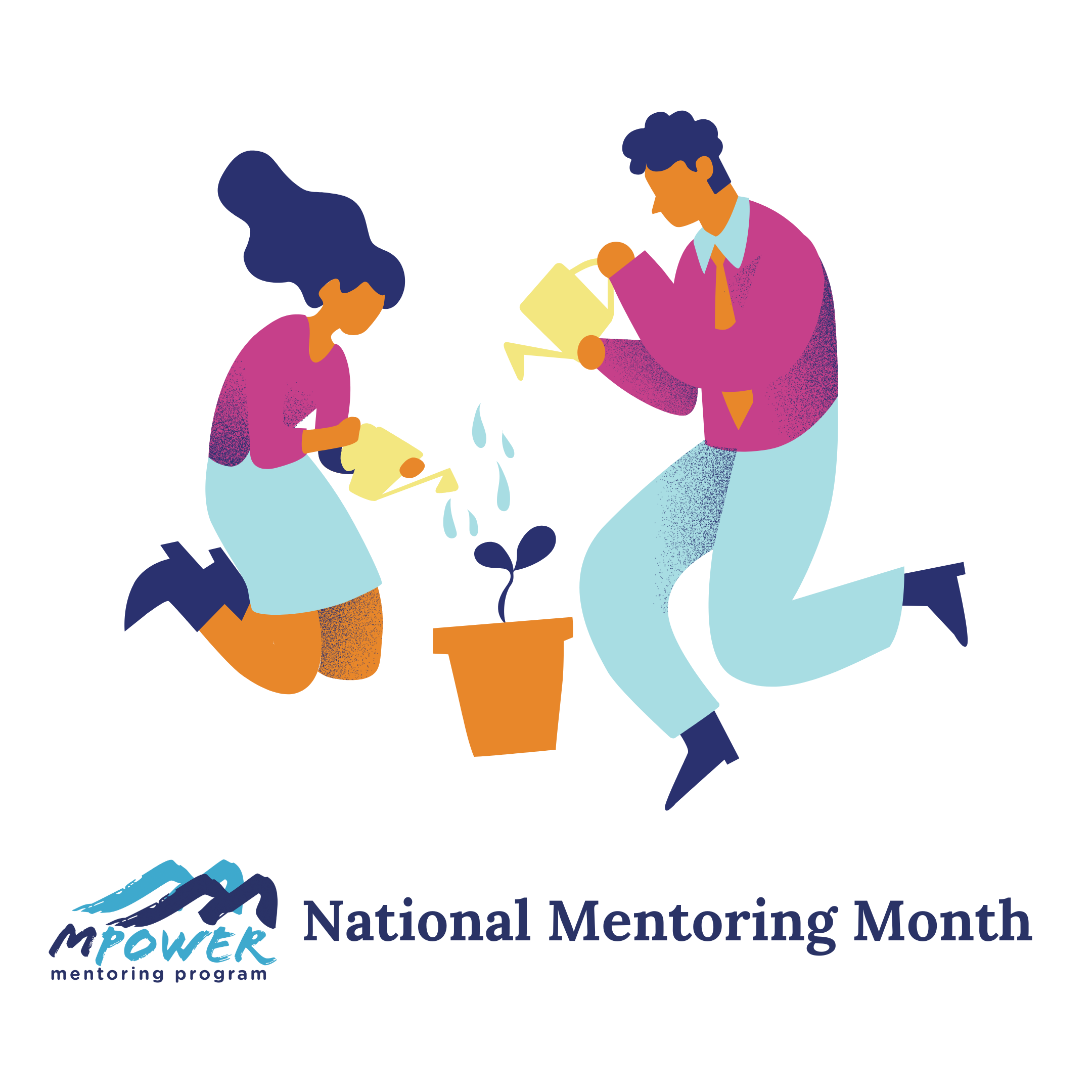
January is National Mentoring Month: a celebration of anyone and everyone who contributes their time, knowledge, and care to support others. From the iconic Jedi Master Yoda in a galaxy far, far away, to the decidedly less intergalactic (but no less stellar) high school teacher, mentors occupy a unique space in our lives.
If you’re considering becoming a mentor, you’re in the right place. Our Mpower program connects students with mentors of all kinds to help them reach their higher education dreams. In this piece, we’ll examine what it means to be a mentor, what impact a mentor might have on a mentee, and whether you could become a mentor yourself.
What is Mentoring?
At the base level, a mentor is someone who shares their experience and knowledge to guide a mentee. Mentorship may happen at any age and in various places. Many people fondly recall sports coaches and teachers as their mentors, but a mentorship can spark anywhere, including school and the workplace. Mentors don’t necessarily need to be much older than their mentees, either. In fact, our Mpower peer mentors work with students who are only a grade level beneath them!
Mentors do more than just give advice, too. They might leverage their connections to open doors for their mentees, or challenge them to take on something difficult. Mentors are not always correct, nor are they the only guiding influence in a mentee’s life, but their unique insight broadens a mentee’s perspective to better deal with life’s challenges.
The Impact of Mentoring
Mentoring has many benefits on mentees, particularly students. On the educational level, mentoring leads to better academic performance, school attendance, and general attitudes towards education. Outside of school, studies show that youth with mentors show a decreased likelihood of initiating illegal drug/alcohol use and decreased violent behavior (mentoring.org).
But what about for mentors? Studies show that being a mentor can increase self-esteem and give individuals a sense of accomplishment, as well as increased patience and improved supervisory skills.
Could I Be a Mentor?
Mentoring isn’t anything new. People have long sought out trusted relationships and sage advice. Mentoring could even be viewed as a sort of long-standing human tradition—but it is one that is increasingly scarce in the modern age for children who need it most.
According to mentoring.org, over 1 in 3 youth report not having a mentor in their life. Our youth currently face a world of disconnection and uncertainty. Having a mentor in that kind of world makes all the difference.
Are you considering whether or not you could be a mentor? Some folks feel an expectation that mentors should be infallible, perfect, and all-knowing—but this couldn’t be further from the truth. Mentors are human beings like everyone else, and the upside to being a human is that you bring your own unique experiences and knowledge with you. These can equip you to better support your mentee and make a difference.
How to Get Started
Ready to mentor? Visit www.launchnw.org/mpower to begin your mentorship journey.


